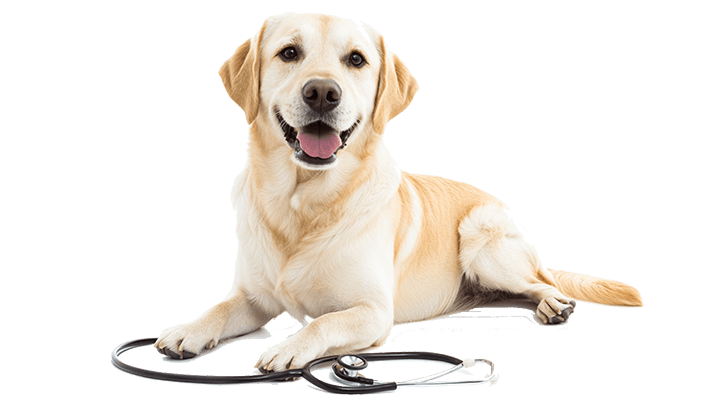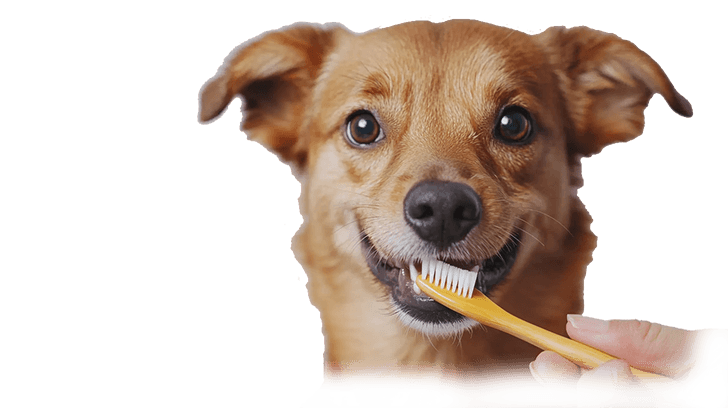Dog Care Health Guides: Keeping Your Dog Healthy
Dogs are loyal companions who rely on us to ensure their well-being. Just like humans, dogs can face breed-specific health issues, which makes it essential for dog owners to be well-informed about their pet’s needs. Whether you’re caring for a high-energy Labrador Retriever or a laid-back Bulldog, understanding your dog’s health needs is the key to ensuring they live a long, happy life. This guide provides general health care tips for all dogs, along with specific advice for common breeds.
General Health Tips for All Dogs
Regardless of breed, there are essential health care practices that apply to every dog. By focusing on these core areas, you can help prevent common health problems and promote overall well-being throughout your dog’s life.

- Regular Vet Visits
Scheduling annual check-ups with a veterinarian is vital for your dog’s health. These visits allow your vet to spot potential problems early, keep your dog’s vaccinations up-to-date, and assess overall health. As dogs age, they may need more frequent vet visits to monitor age-related conditions like arthritis, dental issues, or cognitive decline. - Nutrition and Weight Management
Feeding your dog a balanced, species-appropriate diet is crucial. The best food for your dog depends on factors such as age, size, and activity level. Consult your vet to ensure you’re providing the right nutrients for optimal health. Overfeeding and lack of exercise are leading causes of obesity in dogs. Controlling portion sizes and sticking to regular exercise routines are key to keeping your dog at a healthy weight. - Dental Care
Dental health is often overlooked, but it’s essential for your dog’s overall well-being. Without proper care, dogs can develop gum disease, tooth decay, and bad breath, which can lead to more serious health issues. Brushing your dog’s teeth regularly helps prevent plaque buildup. If your dog resists brushing, dental chews can be an effective alternative. Schedule dental check-ups with your vet to ensure there are no underlying issues like infected gums or damaged teeth. - Exercise and Mental Stimulation
Physical activity is essential for maintaining your dog’s muscle tone, cardiovascular health, and overall fitness. Regular walks, playtime, and breed-appropriate activities are crucial. In addition to physical exercise, dogs need mental stimulation to stay sharp. Incorporate puzzle toys, training sessions, and interactive play into your dog’s daily routine to prevent boredom. - Parasite Prevention
Dogs are susceptible to fleas, ticks, and heartworms, especially if they spend a lot of time outdoors. Protect your dog with year-round preventatives to avoid parasite infestations. Regular grooming sessions are not just for keeping your dog’s coat clean. Grooming gives you the opportunity to check for any signs of parasites or skin problems early on. - Vaccinations and Preventive Care
Keeping your dog’s vaccinations up-to-date is crucial for preventing life-threatening diseases such as rabies, distemper, and parvovirus.n addition to preventing unwanted litters, spaying or neutering your dog can reduce the risk of certain cancers and lower the chances of behavioral problems, like aggression or marking.

Breed-Specific Health Issues
Different dog breeds have unique genetic predispositions that can lead to specific health problems. Here’s a breakdown of common health concerns for popular breeds:
Labrador Retriever
Labradors are known for their friendly, high-energy nature, but they’re also prone to a few key health issues:
- Hip and Elbow Dysplasia—Labradors are prone to joint issues as they age. This condition causes the joints to develop improperly, leading to arthritis. To help manage this, focus on maintaining a healthy weight, provide joint supplements, and schedule regular vet check-ups.
- Obesity—Labradors are notorious for overeating. Keep a close eye on portion sizes and ensure your dog gets plenty of exercise to prevent obesity-related issues, like diabetes or joint strain.
- Ear Infections—Due to their floppy ears, Labradors are prone to ear infections. Regular ear cleaning with vet-approved solutions can help prevent moisture buildup and infection.

German Shepherd
German Shepherds are intelligent, loyal, and highly active, but they can suffer from several serious health conditions:
- Degenerative Myelopathy—A genetic condition that affects the spinal cord, causing progressive paralysis. There is no cure, but early diagnosis can help manage symptoms with physical therapy.
- Bloat (Gastric Dilatation-Volvulus)—This life-threatening condition occurs when a dog’s stomach fills with gas and twists. To reduce the risk, avoid feeding large meals before exercise and feed multiple smaller meals throughout the day.
- Hip Dysplasia—Like many large breeds, German Shepherds are prone to hip dysplasia. Maintaining a healthy weight and using joint supplements can alleviate discomfort and slow the progression of the condition.
Bulldog
With their charming personalities and distinctive wrinkled faces, Bulldogs are beloved pets. However, their unique structure predisposes them to certain health problems:
- Brachycephalic Airway Syndrome—Due to their short noses and flat faces, Bulldogs often experience breathing difficulties. Avoid strenuous exercise, especially in hot weather, as it can lead to overheating.
- Skin Fold Dermatitis—The wrinkles on a Bulldog’s face and body can trap moisture, leading to infections. Clean and dry the folds regularly to prevent skin irritation or infections.
- Joint Issues—Bulldogs are prone to joint problems due to their stocky build. Keep them at a healthy weight and avoid high-impact activities that could stress their joints.

Poodle
Poodles are intelligent, hypoallergenic dogs known for their distinctive coats. Despite their elegant appearance, they face several health challenges:
- Addison’s Disease—This hormonal disorder affects the adrenal glands, causing symptoms like lethargy, vomiting, and poor appetite. Early diagnosis and treatment are key to managing this condition.
- Progressive Retinal Atrophy (PRA)—Poodles are prone to PRA, a degenerative eye disease that can lead to blindness. Regular eye exams can help detect the condition early, though there’s no cure.
- Bloat—Like German Shepherds, Poodles are at risk for bloat. Avoid feeding large meals and vigorous exercise right after eating to reduce the risk.
Golden Retriever
Golden Retrievers are one of the most popular dog breeds due to their friendly and loyal nature. However, they are also prone to several serious health problems:
- Cancer—Golden Retrievers have a higher-than-average risk of developing cancers such as hemangiosarcoma and lymphoma. Regular vet visits and early detection are crucial.
- Hip Dysplasia—Golden Retrievers are susceptible to hip dysplasia, a genetic condition that affects joint health. Keeping your dog at a healthy weight and providing joint supplements can reduce the severity of symptoms.
- Ear Infections—Like Labradors, Golden Retrievers are prone to ear infections. Regular cleaning can help prevent the buildup of wax and moisture that leads to infection.
Preventive Health Measures
Taking a proactive approach to your dog’s health can prevent many serious issues down the road. Here’s how to stay ahead of potential problems:
- Keep Vaccinations Current—Ensure your dog’s vaccinations are up-to-date based on your vet’s recommendations to protect against preventable diseases.
- Regular Grooming—Grooming is more than just keeping your dog’s coat clean. Depending on the breed, regular grooming prevents skin issues, detects parasites early, and maintains coat health.
- Balanced Diet—A well-balanced diet is essential to your dog’s long-term health. Tailor your dog’s diet to their breed, size, and activity level, and always consult your vet before making significant dietary changes.
- Weight Management—Keeping your dog at a healthy weight is one of the simplest ways to prevent joint problems, heart disease, and diabetes.
- Routine Exercise—Ensure your dog gets the right amount of exercise based on their energy levels. Regular activity not only supports physical health but also helps with mental stimulation.
When to Visit the Vet
As a responsible dog owner, it’s important to recognize when something might be wrong. Here are common symptoms that require veterinary attention:
- Lethargy or lack of energy
- Loss of appetite
- Vomiting or diarrhea
- Changes in urination or bowel movements
- Excessive scratching or licking
- Breathing difficulties
- Lumps, swelling, or unexplained weight loss
If you notice any of these symptoms, or if something seems off with your dog, always consult your vet promptly. Early intervention can make a significant difference in treatment outcomes.
Providing comprehensive care tailored to your dog’s breed, size, and specific health needs ensures they lead a happy, healthy life. From regular vet visits and proper nutrition to preventive measures and breed-specific considerations, staying informed is the best way to keep your dog in optimal health.
Explore Our Breed-Specific Health Guides:
Conclusion: Every dog breed has unique health considerations, but with the right knowledge and care, you can ensure that your dog lives a long, healthy life. Explore our breed-specific health guides for detailed information on how to care for your dog’s specific needs and to stay proactive in maintaining their overall health.

